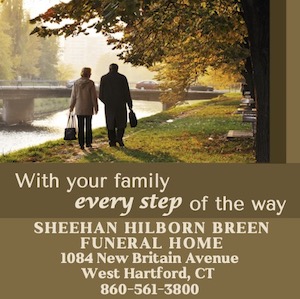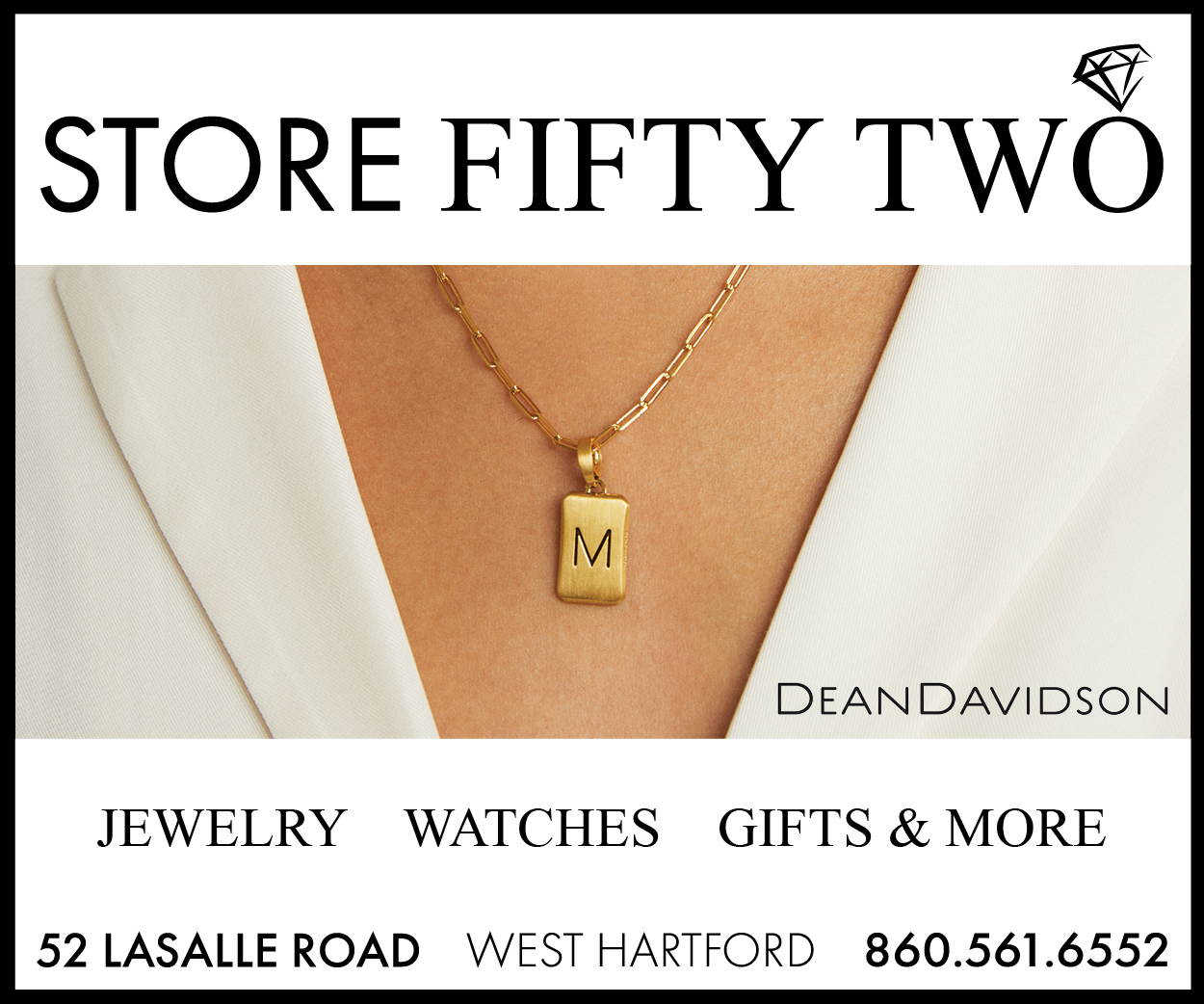
By Cindy Mindell
BRIDGEPORT – In the early-morning hours of Dec. 11, 1940, two truck-drivers found Greenwich socialite Eleanor Strubing wandering near the Kensico Reservoir in Westchester County, N.Y. Strubing told police that she had been raped by her black chauffeur, Joseph Spell, who then bound and gagged her and drove her to the reservoir, where he pushed her off a bridge into the water.
Major East Coast newspapers indicted Spell in a flurry of racist and sensational accounts, creating a media frenzy that threw the New York-based NAACP into crisis mode. The organization’s lead attorney, Thurgood Marshall, immediately committed to defend Spell. He would be joined by Samuel Friedman, a young Jewish attorney in Bridgeport and the only white lawyer willing to touch the case.
The State of Connecticut v. Joseph Spell eventually receded from public memory, until this year, when the courtroom thriller, Marshall began production. Written by a father-and-son screenwriting team, the film is directed by Reginald Hudlin, and follows the trial that defined the early career of the first African-American Supreme Court justice.
The screenplay was co-written by Bridgeport-based attorney, Michael Koskoff, and his son, screenwriter Jacob Koskoff, a 1985 graduate of Staples High School in Westport.
Michael Koskoff is a partner in Koskoff, Koskoff & Bieder, PC. A renowned litigator specializing in personal injury and medical malpractice, Koskoff earned a reputation early in his career as a civil rights advocate. In 2008, Koskoff was awarded a Lifetime Achievement Award for his work by the Connecticut Trial Lawyers Association. He has also received the National Association of Black Patrolmen Dedicated Service Award, the Greater Bridgeport NAACP Waverly Jones Freedom Award, and the Afro-American Educators Association Dedicated Service Award.
Koskoff spoke with the Ledger about the evolution of “Marshall” and more.
Jewish Ledger (JL): How did you come across the story?
Michael Koskoff (MK): The story came from a friend of mine, Jack Zeldes, a lawyer who founded the law firm of Zeldes, Needle & Cooper in Bridgeport and who passed away last year. He was an outstanding lawyer and something of a legal historian. He and I were talking one day and he said, “There’s a great story that should be told and I think it would make a great screenplay but I’m not a screenwriter.” He knew that I had two children who are screenwriters and he thought maybe one of them would be interested. I brought it to my daughter, Sarah, and my son, Jacob, and at the time, neither one of them was able to do it – they both had other projects – and they didn’t really feel that they had the background for it. So I said, “I’ll try it myself.”
I had dabbled in screenwriting before, but nothing ever came to be produced.
JL: What attracted you to the story?
MK: My own experience: the first 10 or 15 years of my practice, I concentrated a lot on criminal defense. I was involved in a number of very significant, high-profile political trials involving race and I was very much involved in civil rights litigation. So I had a sense of the dynamics that take place in a political trial. It’s different from other kinds of trials and the trial of Joseph Spell had vast political overtones.
This is what hooked me on the story. A woman was found wandering near a reservoir late at night and told a lurid story about having been raped by her chauffeur. The newspapers picked it up and went wild with it. One called it “the sex trial of the century.” It was sort of like the O.J. Simpson case, in some ways. The NAACP decided they needed someone to defend Joseph Spell. They went to Bridgeport and they tried to go to the prominent criminal defense attorneys of the day and no one would go near it. They got to Sam Friedman because the head of the NAACP had gone to high school with him, and essentially begged Sam to take the case.
This was a tremendously courageous thing for Sam to do: he was a young lawyer trying to make a practice for himself – he started practicing in 1936 – and this was not a popular thing for a lawyer to do in those days. At first blush, it seemed pretty much like a hopeless case, a case that couldn’t be defended, so there was absolutely no reason for him to take this case. But he did, because I think he felt the man deserved a defense. Sam was born in Minsk and came to the United States as an infant. He didn’t have an accent but he was still definitely concerned, as an adult, about his ability to assimilate into the greater community. So this was another pressure on him.
Another thing that hooked me is the period of time we’re talking about. This alleged crime took place in December 1940 and the trial was in January 1941. The war is raging in Europe – the U.S. hadn’t entered it yet – Britain is being bombed, Jews are being picked up off the street in eastern Europe, where Sam was from. We have serious times now but, as far as the Jewish population was concerned, we were on the verge of Armageddon. This is in the background of the story and of the screenplay. At the same time, in the African-American community, there were vast changes taking place: because we’re gearing up for the war in Europe, there are job openings in the North, and African-Americans are coming north to get those jobs. This media frenzy caused African-American workers – particularly, domestic workers – to be fired all over the country and that’s why the NAACP felt it was so important that Joseph Spell get a defense.
So it’s a story rich in history and rich in characters that we tried our best to portray.
JL: What is the focus of the movie?
MK: The larger focus of the movie is on Marshall and the story of Sam’s and Marshall’s friendship is illustrative both of the kind of person Marshall was and the kind of heroism that Jewish people have over the years experienced and demonstrated in helping the cause of racial equality – Jews such as the lawyer, Jack Greenberg, who was the director counsel of the NAACP Legal Defense Fund from 1961 to 1984, succeeding Marshall. Together, they changed the fabric of American society. The involvement of Jews in the NAACP Legal Defense Fund has been essential.
Initially, taking the case posed a threat to Sam Friedman. He received letters threatening him and his family. After Joseph Spell was acquitted, there was a period when he was somewhat persona non grata in a lot of places. But for him, he considered it one of his contributions to society because afterwards, he felt that he had done something worthwhile. In fact, when I say that there’s a shared history of discrimination, for him at the time, as a Jewish lawyer in Bridgeport, there were a lot of jobs and places to live that were closed to him. Most of Westport was “restricted,” as was the Greenfield Hill section of Fairfield, where he moved. Shortly after he moved in, there was a young black doctor and his family who wanted to buy a house there and no one would sell to him. Sam engineered a plot: he got a straw buyer to buy the property and turned it over to the doctor, and Sam took huge pleasure in that. Sam was a very principled person, and that was basically what caused him to do all of that.
JL: How did the screenplay go from concept to production?

(l to r) Lauren Friedman, daughter of Atty. Samuel Friedman, John Marshall, son of Justice Thurgood Marshall, and screenwriter Michael Koskoff.
MK: There’s so much serendipity that occurred in order to make this screenplay come to life. Alan Neigher is a friend of mine and an entertainment lawyer in Bridgeport; he read the screenplay and loved it, and he knows the Friedman family. He asked if he could show it to Lauren Friedman, Sam’s daughter. Lauren loved it and I didn’t know at the time, but she has a background in theater, and asked if she could show it to Paul Wagner, a friend and producer in Hollywood. Paul really liked it and said to me, “I love this story and I think you’ve done an incredible job with the courtroom scenes, but in order to make a movie and in order to make this viable, the characters have to be fuller and there has to be more backstory.” That was beyond my capabilities. My son, Jacob, expanded the story, developed the characters further, and developed more plot lines to help make the screenplay have more impact. In the end, it was a 50/50 collaboration and it was great because I had the opportunity to work with my son.
JL: How did you learn about Sam Friedman?
MK: I had met Sam Friedman when I was a very young lawyer in Bridgeport and he was an older and more seasoned lawyer in Bridgeport. His brother, Irwin Friedman, was a trial lawyer whom I had tried cases against when I was young and he was my father’s age. The Friedman family was very intimately involved in giving us information about Sam. Then we had the very good fortune to meet Thurgood Marshall’s son, John Marshall, who also provided helpful and useful information and also liked and approved the screenplay.
JL: Can you tell us about your own family background?
MK: My paternal grandfather came to New Haven from Elizabethgrad in Ukraine – now Kirovohrad – and he had a fruit stand and wholesale fruit business. My father, Ted, was born in New Haven and grew up in a family of seven children on Orchard Street. He went to Hillhouse High School, then to Wesleyan and to Boston University and became a lawyer. He knew Sam Friedman.
I was born at Bridgeport Hospital and my father had his practice in Bridgeport. We then moved to Stratford, where I grew up, and where I was almost always the only Jewish kid in my class. My uncle, Sidney Penner, who was a physician, also moved to Stratford. He and my mother started the Stratford Jewish Group and we used to hold our services in the Methodist church initially. They put together some money and they got a building on Huntington Road, which we used to call “the building” and the synagogue grew from there. I had my bar mitzvah at the JCC of Bridgeport before we had a temple. I always felt very much accepted. Most of my friends were Catholic and I got along very well with them.
One of the cases I handled was a school desegregation case and what I learned was that when blacks are a very small minority, they become favored in an environment. When they reach a critical mass, they become a threat, so the sentiments turn. In Stratford, there were so few Jews that we were viewed as an oddity so it wasn’t so bad, in general. In fact, there are a lot of African-Americans in Stratford but there weren’t when I was growing up. There was one African-American in the class ahead of me in high school and he became president of the class – again, that favored status, even though I heard people make racist comments about him.
My parents moved to Westport in 1959, when I was in college. In 1966, after I graduated from UConn School of Law, I moved to Westport and we’ve been there since.
JL: How did you get involved in civil rights litigation?
MK: My father and I together were involved in the trials of the Black Panthers in New Haven in 1970, and that was my entre into the Civil Rights movement. I was actually involved before then, in college, at civil rights demonstrations and the like. After representing the Black Panthers, I got involved in representing the black police in Bridgeport. [In 1972] they came to me and said, “If you could represent the Black Panthers, you can represent someone really unpopular, and that’s us.” I ended up bringing a lawsuit in Bridgeport on behalf of the Bridgeport Guardians; at the time, there were only 14 black police officers on the entire force of 460 people, even though the population at that point was more than 25 percent black. We brought a lawsuit to improve hiring and got a huge, basically historic, hiring order to get more black police officers. Then I brought some other cases, for firemen, and one in New Haven with another lawyer named David Rosen.
JL: From your perspective, how have black-Jewish relations evolved in the U.S.?
MK: The bond between Jews and blacks in the fight for liberty is an old one and a strong one. It’s gone through some rocky times at points; there have been conflicts. But essentially, what I’ve always felt we share is a common history of slavery. At Passover, I always like to read thoughts on what Judaism really means, and what I found is the central narrative of Judaism is the Exodus and the fight for freedom. That’s the one thing that has resonated in Judaism all these years, so it’s natural that blacks and Jews would be united in that battle.
I think that bond went through some bad times, particularly during the time of Malcolm X, when there was some antisemitism expressed by Elijah Muhammad and I think that there was some real tension, as there was during the Black Panther times. I think it has withstood that and there’s been a leveling off. I’m not sure that Jews are as intimately involved in the black struggle at this point as they once were, or that blacks are that involved at this point in the various struggles that Jews have, fighting antisemitism, but I think that the bond is still there and that it’s still strong.
There was something of a falling-out a few years ago, mainly about the issue of affirmative action. For blacks affirmative action meant getting into the power structure – getting jobs and education – but it went against what Jews had fought for for many years, which was meritocracy. So, the whole idea of quotas was completely an anathema to Jews, and for good reason. The idea of affirmative action was very important to African-Americans, for good reason. This was a real lightning rod issue and I think it caused some consternation on both sides. As it’s shaken out over the years, I think that that has dissipated.
In many instances, the only white people whom African-Americans came into contact with were Jewish people because Jews lived in the neighborhoods that blacks moved into and Jews became the landlords. So, the feelings about Jews that were negative were not against Jews as such but against landlords, people blacks thought were representative of the power structure.
JL: Since we’re talking about Thurgood Marshall here — did he have any kind of relationship with the Jewish community?
MK: Thurgood Marshall’s first job, when he was seven, was with a Jewish merchant. The merchant’s son, Sammy Hale, was his best friend. He maintained a very close relationship with Jewish people his entire life. He spoke some Yiddish and moved easily within the Jewish community. He later worked delivering hats for Mortimer Schoen, a hat maker. He was on a bus one day and a man jostled him and made a racial slur. Marshall punched him and the police came and arrested Marshall and put him in jail. Mr. Schoen came and posted bail and when Marshall told him what the man had said, Mr. Schoen said, “You did the right thing.” He felt a very close emotional attachment to the Jewish experience.
JL: How do you account for the popularity in the black community of openly antisemitic figures like Louis Farrakhan?
MK: There are always people in every group who say things. He was never a very persuasive leader; he had a small following but he never represented the black community in any larger sense.
It doesn’t surprise me that there would be some antisemitism among African-Americans: we live in a society that has antisemitism, with the Ku Klux Klan and other radical Christian groups and the like. In a way, it’s surprising that there is so little antisemitism in the black community. A significant portion of the black community has embraced Islam but they have not embraced antisemitism, which is often present in other Islamic parts of the world. In the beginning, when you talk about people like Elijah Muhammad, I think they did flirt with it, but at the present time, there seems to be no real indication of that.








 Southern New England Jewish Ledger
Southern New England Jewish Ledger











